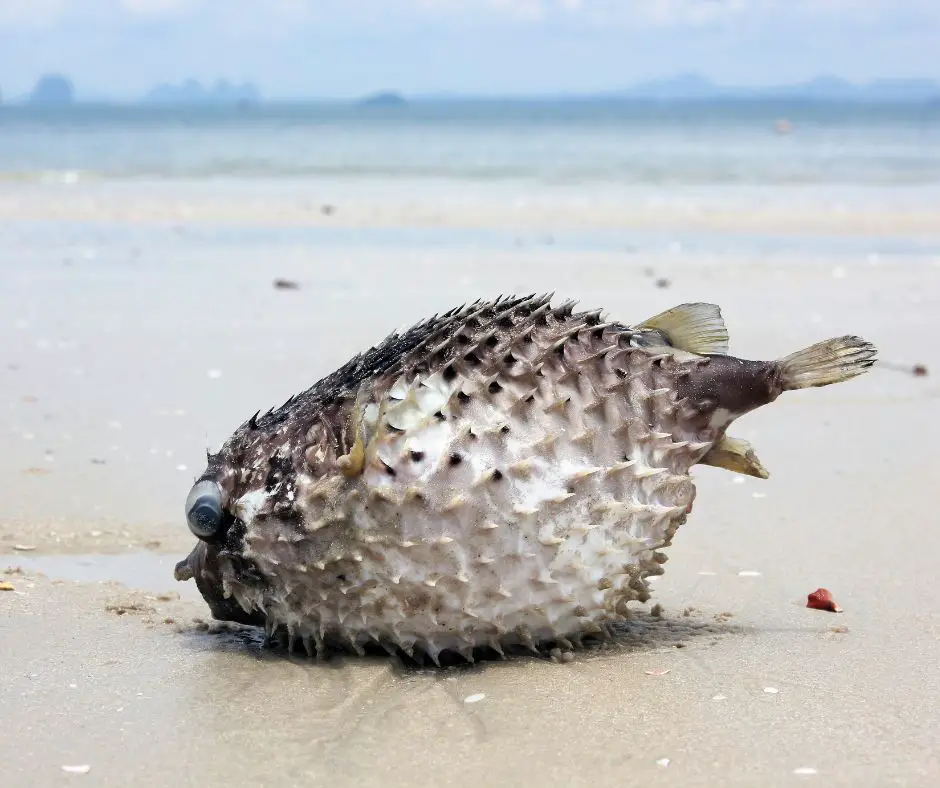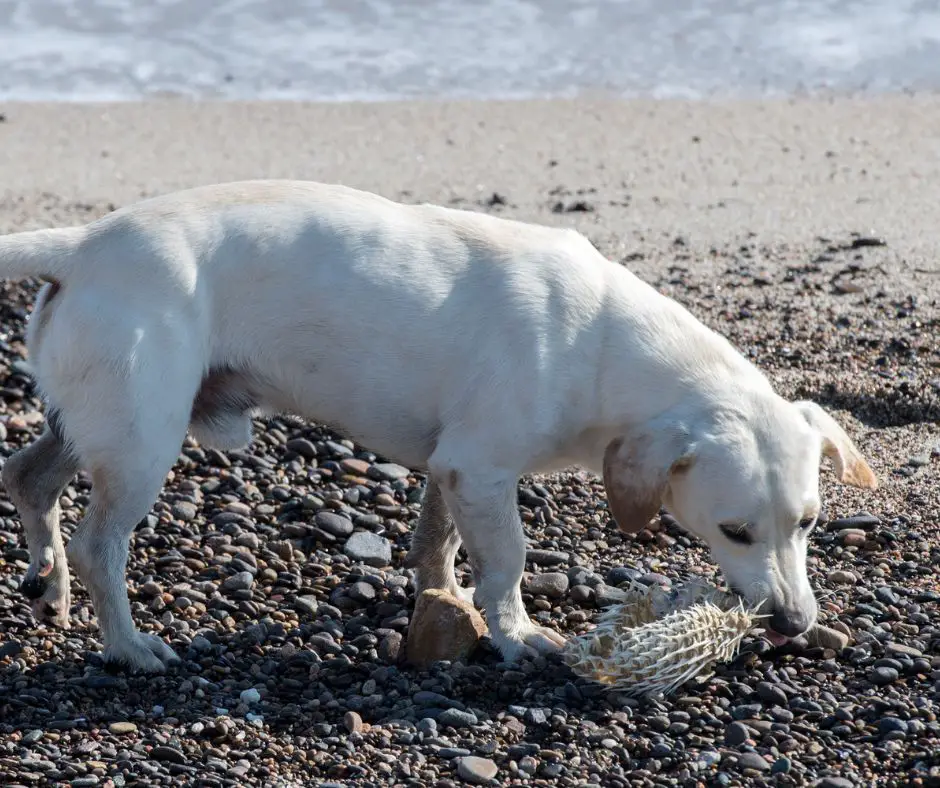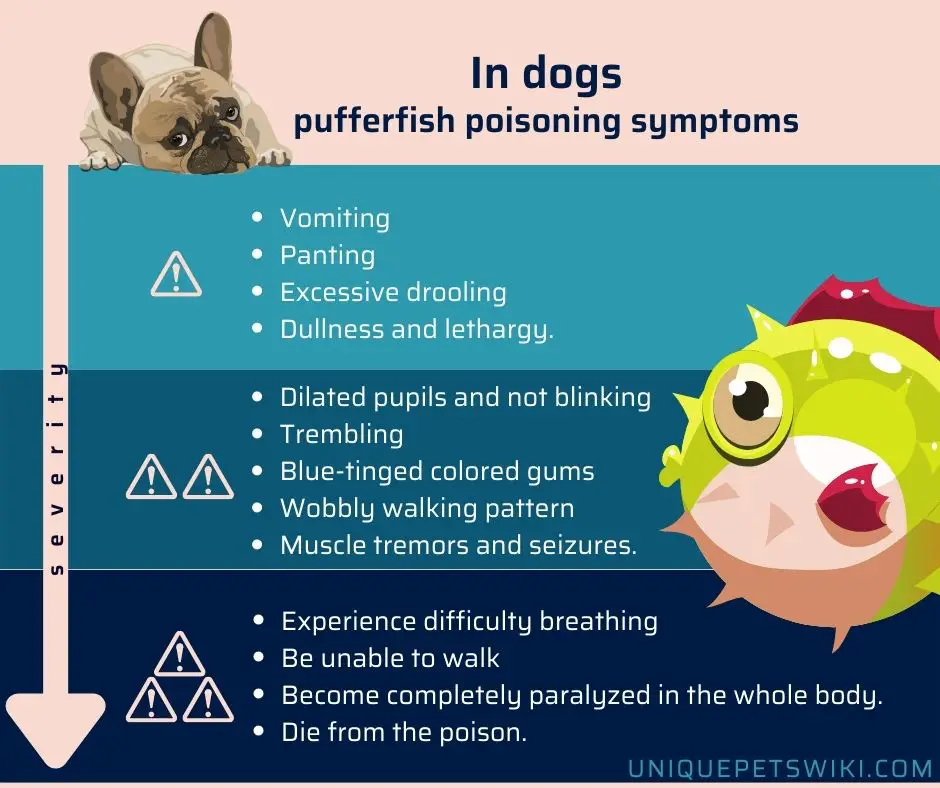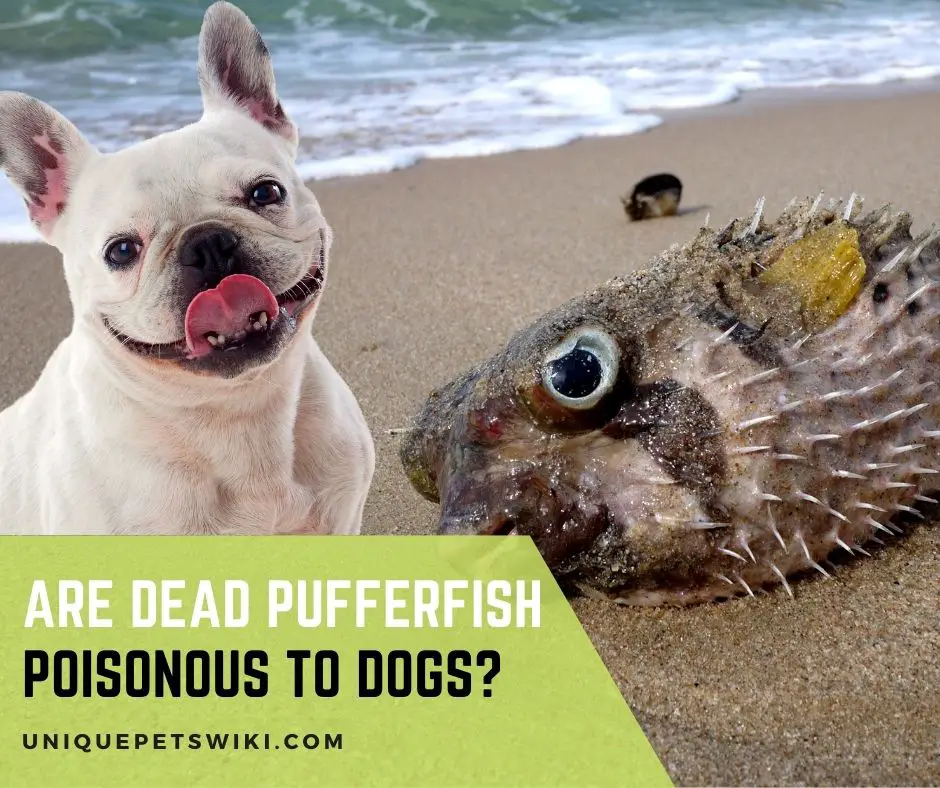Are dead pufferfish poisonous to dogs? Are you afraid your dog pet ate a dead pufferfish, and you don’t know what to expect?
Pufferfish are famous for their poisonous ability. They produce deadly toxins capable of paralyzing and killing people and animals.
Instinctively, dogs are scavengers, and it can cause the greatest fear to owners if their dogs accidentally consume something poisonous.
If you’re curious to know if pufferfish lose their toxins after dying and whether dogs can eat dead pufferfish, you got the right article. Keep reading for more.
Contents
Are Dead Puffer Fish Poisonous to Dogs?

Yes, dead pufferfish are poisonous to dogs and have the same impact as live pufferfish. Initially, your dog pet may seem okay; however, paralysis can soon set in without prompt treatment.
The body of live and dead pufferfish comprises tetrodotoxin, a highly poisonous substance with dangerous impacts on dogs and humans. Dogs can get this poison in various ways, including ingesting, chewing, or licking.
A dog rolling on a surface with organ fluid from pufferfish will also be affected. Whichever the way, a pufferfish poison can lead to serious poisoning cases in dogs.
Many dead pufferfishes on the beach are washed up, jet from fishers’ catch, or left behind, where dogs mostly find them.
These fishes should not be overlooked because they contain the greatest deadly natural poisons. Pufferfish poison is exceptionally fast-acting in dogs, and the signs of poisoning are noticeable within a few minutes.
Are Dead Puffer Fish Poisonous to Touch?

Yes, it is unsafe to touch a dead pufferfish because it has toxins. These toxic substances occur in large amounts in pufferfish organs (including liver, gonads, intestines) and skins.
The organs and skins are poisonous whether the pufferfish is alive or not. The only way to get a pufferfish’s flesh free from tetrodotoxin is to remove the toxin’s organs.
It requires a specially trained and licensed expert to remove these organs carefully, and in a way, they don’t cross-contaminate the flesh part without toxins.
If you have to come into contact with a pufferfish, it’s advisable to use extremely thick gloves when handling them.
How Poisonous Are Puffer Fish?
Pufferfish are exceedingly poisonous. They are second on the list of most poisonous vertebrates worldly, the golden poison frog being on top. The poison in these creatures is what we are referring to as tetrodotoxin.
Tetrodotoxin is lethal, up to 1,200 times more poisonous than cyanide, making it incredibly fatal to humans. Amazingly, one pufferfish comprises enough toxin to kill 30 adult humans.
And the worst thing is that the poison’s antidote is unknown. This toxin is one of the leading deadly natural poisons. Likewise, tetrodotoxin poses a major threat to dogs.
Dogs don’t get this poison by consuming pufferfish only, but also by chewing and licking them. The living and dead pufferfish carry the poison and are noxious to dogs.
What If My Dog Eats a Puffer Fish?

For a dog that consumes dead pufferfish, signs of poisoning become apparent within minutes. Paralysis can set in within a short time as one hour. In extreme instances, the poisoned dog can die within an hour.
The level of pufferfish toxicity in dogs tends to vary. It can have a mild impact on some dogs but cause paralysis in other dogs, which may only recover after a vet’s intervention.
Some dogs will breathe their last before you know it. Reports on dogs that succumbed to pufferfish poisoning are widespread.
For instance, a couple of years back, two dogs met their death on Auckland beaches after consuming pufferfish. Many dogs take pleasure in walking on beaches, but it can turn out to be fatal when the dog eats pufferfish.
What Should You Do When Your Dogs Touch a Puffer Fish?
Pufferfish secrete tetrodotoxin across their body, making them dangerous to touch. Dogs that touch this toxin are lucky for only a few minutes before the signs of poisoning become apparent.
If your dog touches a pufferfish, you need to act as quickly as possible to save its life as a responsible owner. Some dogs are fine at first after contacting the toxin, but without treatment soon become paralyzed.
Please don’t wait for symptoms to manifest, but immediately bring the dog to your veterinarian, who will take the appropriate action to help it.
Alternatively, you can rush the dog to your closest Animal emergency service hospital if it’s available.
Puffer Fish Poisoning Symptoms

In dogs, pufferfish poisoning symptoms are apparent after very little time because the poison acts extremely quickly.
At first, a dog may show mild signs of poisoning but without appropriate action progresses to become severe. The mild signs of pufferfish poisoning in dogs include;
- Vomiting
- Panting
- Excessive drooling
- Dullness and lethargy.
Without treatment, the symptoms progress to;
- Dilated pupils and not blinking
- Trembling
- Blue-tinged colored gums
- Wobbly walking pattern
- Muscle tremors and seizures.
The symptoms may progress to become more severe in no time. At this stage, the affected dog will;
- Experience difficulty breathing
- Be unable to walk
- Become completely paralyzed in the whole body.
- Die from the poison.
While dogs can recover from pufferfish poisoning, it depends on how quick you are to bring your dog to the vet.
The best way to save your dog after consuming pufferfish is to seek medical treatment without further ado. Sometimes the dog can vomit right away after it eats pufferfish.
You need to check if it brought up the fish remains, and then cautiously bring the fish and the dog to your vet. Ensure to use heavy-duty gloves. The fish remain to help the vet to identify the issue quickly.
Puffer Fish Poison Treatment
The antidote for pufferfish poison is still unknown, and because of its quick action, vets should see a dog that consumes pufferfish as soon as possible.
The veterinarian will perform various tests, including a blood test to assess the degree of poisoning.
Nothing can prevent tetrodotoxin poison from working or reverse its effects; however, the vet can induce vomiting to remove the toxin from the dog’s body. Treatment for tetrodotoxin poisoning may also include;
- Administering activated charcoal to help remove the toxin—the charcoal functions by binding to the poison and preventing its further absorption into the blood.
- The vet can give soluble fat fluids to the dog to dilute the toxin.
- IV fluids for hydration
- Oxygen therapy will be necessary when the dog has problems with breathing.
- In extreme cases of paralysis, mechanical ventilation (life support) may be helpful.
Unfortunately, recovery is not guaranteed for paralyzed dogs. But those dogs that receive prompt treatment will recover within a day or two.
Key Takeaways
Pufferfishes contain a natural deadly poison that can paralyze and kill dogs. Owners should be cautious about any fish or fish parts they offer to their dogs.
They should also be watchful for fish on the beach or fishing pliers. While on the beach, always keep an eye on your dog and do not allow it to approach any washed-up fish.
It’s also important that the fishing enthusiasts return any pufferfish caught to the water rather than leaving them behind where dogs can find them.
If your dog touches or eats a pufferfish, you should seek medical attention without further ado. There is a high chance of recovering from tetrodotoxin poison for dogs that receive immediate treatment.
